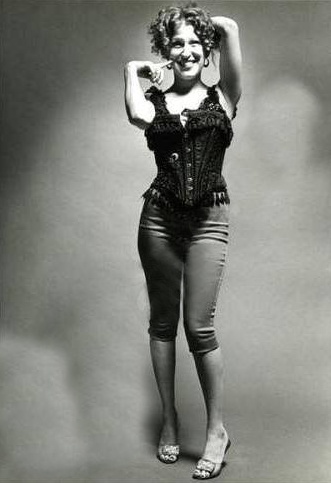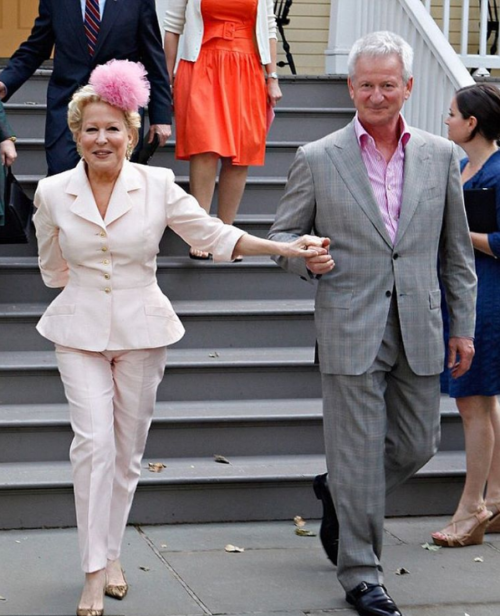
The Rose
Review by Gil Jawetz
DVD Talk
THE STRAIGHT DOPE:
After decades of films like The First Wives Club, Outrageous Fortune and Scenes From a Mall a viewer could be forgiven for thinking that Bette Midler is little more than a chubby, crass, abrasive comedian. Having heard of her 1979 film The Rose throughout the years, and being aware of her bathhouse performances of the Seventies, I was expecting a camp-fest, something I’m more than happy to watch. But I was totally unprepared for the emotional honesty and complexity of the film as well as the brave, raw, masterful performance of the star. Simply put, The Rose is one of the finest films ever made on the life of an artist. Playing a character loosely based on Janis Joplin, Midler triumphs at showing the tremendous highs and lows (often taking place at the exact same time) experienced by a rock singer.
The film starts with Rose stumbling out of an airplane, practically hitting the runway, and dropping a bottle of booze. Alcohol and pills are constants in her life and the wear and tear are taking their toll. She tells her manager Rudge (played by Alan Bates) that she plans to take a year off after an upcoming hometown show. He’s disgusted at her weakened state and her willingness to abandon commitments she’s made, a decision that will lose them both a lot of money. After a show in New York City Rudge takes Rose to meet Billy Ray, a country star played in one brief scene by Harry Dean Stanton. Billy Ray gives it to Rose straight in a short but devastating moment that tests her confidence. Rose takes off and meets Houston Dyer (Frederic Forrest), a limo driver who’s actually AWOL from the military. The two of them team up as Rose hops on and off her ongoing tour. One particularly entertaining scene finds them in a drag queen club where a Rose impersonator invites the real thing on stage for a hilarious and rather rousing duet.
Eventually they wind up in Florida, where Rose’s big homecoming show is set to take place. This isn’t just some reunion with her past: She plans to show them all how big she’s become and how far she’s gone from her humble start. But her emotional journey has stretched her thin, and Houston takes off. In the end, Rose’s life, like Joplin’s, is cut short.
Every aspect of this film is top-notch. Legendary cinematographer Vilmos Zsigmond shoots both intimate dramatic scenes and loud, huge concerts with the dark edge of the best films of the era. His emphasis on darkness helps take the film deeper into Rose’s psyche. The script by Bo Goldman and Bill Kerby is sharp and observant but never pretentious. Rose may be an artist but she’s also firmly grounded as a human being and even her flightier observations are painfully real. She’s not particularly smart in a book sense, but she has bite and wit. The script also knows when to pull back and observe behavior. At times Rose is almost like a gladiator and singing her battle. She prepares for one concert in a way that predicts Jake LaMotta’s final dressing room pump-up in Raging Bull, which came out the year after The Rose. And director Mark Rydell (who reteamed with Midler for 1994’s For the Boys and who also helmed 2001’s James Dean) displays both the skill to put together intimate emotional character development while still allowing for an air of danger and live-wire intensity. The movie operates on a sliding scale of bigness, going from human detail work to grand spectacle with ease.
The performances are uniformly excellent. Given a subtle role to pull off, Bates avoids big rock promoter cliches. He doesn’t throw his weight around needlessly but he isn’t afraid to let everyone know that he’s in charge if he needs to. He’s much more effective handling Rose with a quiet threat than with scenery chewing. Stanton is only on screen for a few minutes but his work is (as always) perfect. His good-old-boy character takes the opportunity to tell Rose exactly what he thinks, with no hesitation and it creates one of the film’s most memorable scenes.
One of the film’s best surprises is the outstanding performance by Forrest (who was nominated for an Oscar, as was Midler.) Known mostly for playing Chef in Apocalypse Now! (which, after its famously long production cycle, was released the same year as The Rose), Forrest projects a quiet intensity that quickly turns wild. His Houston is a strange, mysterious character who appears at first to be a bit player in the life of the Rose but who quickly becomes a focus of the film. He’s filled with excitement and energy but also anger and frustration. A couple of times he turns violent around (and with) Rose, something that should still be shocking to audiences, but he’s wounded as well. The film is too smart to psychoanalyze these characters to the point of dullness (very little is nailed down about their earlier lives) and Houston instead tells his backstory through what he chooses to leave out.
Of course the chief force behind the film is Bette Midler, who wasn’t a movie star by any stretch at the time. Her all-real performance here is a wonder of energy, talent and drive. She whirls around the concert stage like a maniac, performing all the songs live (Rydell chose to film the concerts for real, with multiple cameras and live music and singing) and gaining real authenticity for the effort. Her quieter moments are just as engaging. She shows early on how she can be emotionally and physically spent in a quiet private moment and then turn on the charm seconds later when the press enters the room looking for some rock-star quotes. She embodies the character inside and out and takes a fine film into unparalleled levels of honesty and power.
VIDEO:
The anamorphic widescreen video starts off a little rough, displaying a good deal of grain and some dirt, but it smooths out, eventually looking quite nice. The often dark cinematography is fairly clear, with some more difficult scenes a bit murky. Colors are muted in a way that’s consistent with films from the Seventies. Overall, however, this is a fine presentation.
AUDIO:
The soundtrack is available in Dolby Digital 4.1 (you read that right, strange as it is), DD 2.0 and French DD 2.0. The 4.1 track sounds fine, with good dynamic range, particularly during the musical sequences. The 2.0 track is typically less enchanting but still sounds acceptable. English and Spanish subtitles are also available.
EXTRAS:
The only extra of note is a commentary track from Rydell. While it would have been nice if members of the cast had joined the director (particularly Midler) it’s still an interesting listen. Rydell clearly loves the film and its star and discusses the process of making it in great detail. He has high praise for just about everyone involved but is happy to back his comments up with smart observations on why he thinks they’re so great. He also describes the impressive technique of shooting the concerts live in enough detail to allow the viewer to appreciate the film even more.
A trailer for The Rose is also included as is a selection of other trailers.
FINAL THOUGHTS:
It’s not often that I’m blown away by a film I’m reviewing without prior expectations. The more I think about The Rose the more I like it. Midler’s characterization of the lead character is moving and affecting and the entire film is created in a masterful, old-fashioned way. The story is no ground-breaking mind-bender but rather this is one piece that concentrates on introducing some damaged characters and really delving into their souls.






